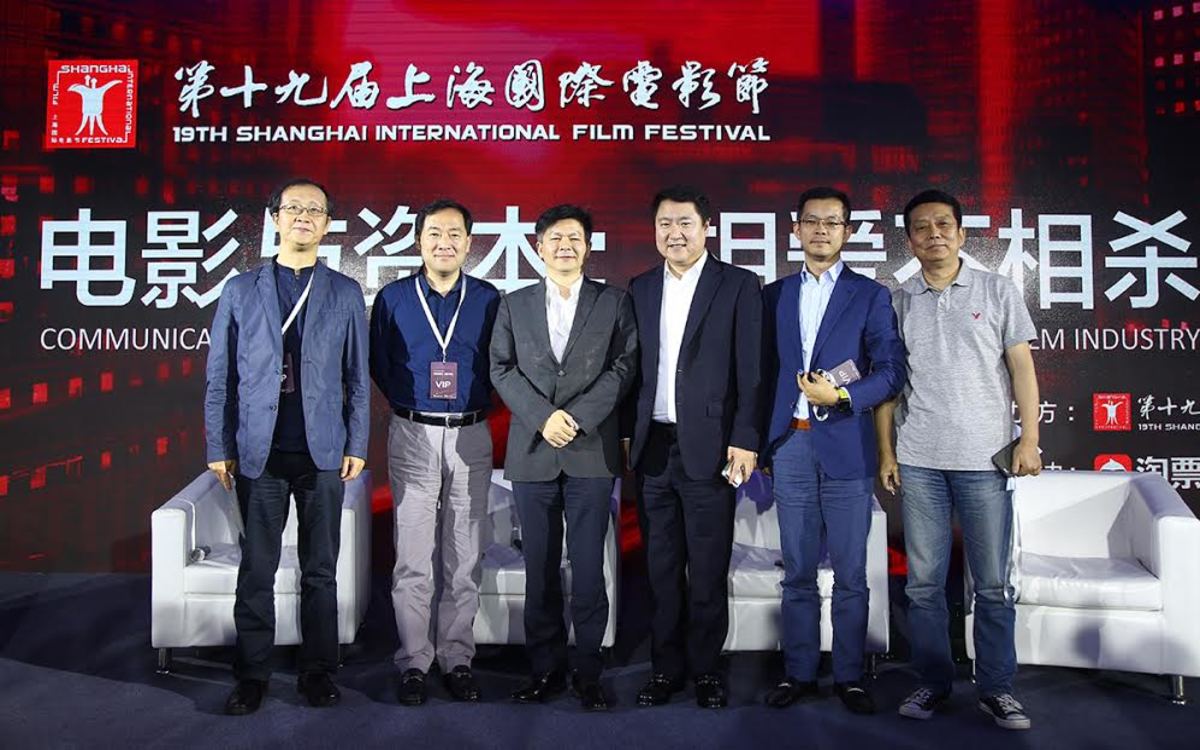- Capital now searching for good scripts and projects, industry leaders say
- China-based money needs Hollywood know-how
- RMB 15-20 billion in investment needed per year
 The speed with which the Chinese film industry has developed in recent years has been dizzyingly fast, even for the country’s most experienced veterans.
The speed with which the Chinese film industry has developed in recent years has been dizzyingly fast, even for the country’s most experienced veterans.
“Less than a decade ago it was the filmmakers who went out looking for financing,” Alibaba Pictures CEO Zhang Qiang told a forum on finance and film at the Shanghai International Film Festival on Sunday.
“Now it’s the investors, armed with money, who are going out looking for scripts and a creative team.”
The massive influx of capital into the Chinese film industry has left many industry players giddy as well as reeling.
“Capital is like blood to the human body” Jerry Ye, Huayi Brothers CEO told the forum. “If it can be used to make good films then that’s good but if its only for burning money blindly that’s not good.”
Zhang and Ye joined Bona Film Group’s Yu Dong, VP of Wanda Culture Industry Group, and president of Wanda Cinema Line Zeng Maojun and veteran director Huang Jianxin on stage to discuss the sea change.
China’s box office grew a staggering 48.7 percent in 2015, reaching a record US$6.78 billion (44 billion yuan) according to official figures released last December.
The market is widely expected to surpass North America as the largest movie market by the end of 2017.
Wanda’s Zeng Maojun said the amount of capital needed to keep the industry developing at a sustainable pace was growing.
“At the moment the local industry is producing around 700 films, with an average investment of between 20 to 30 million” he said, “That means the industry needs about RMB 15 to 20 billion of total investment each year.”
Mergers and acquisitions in China’s film industry have jumped recently with 125 domestic transactions taking place since 2015 in deals totaling RMB 92.7 billion according to data provider Wind.
But the influx of capital is also coming with risks warned Zeng, including complicated derivatives and financial instruments.
“Recently a lot of fast money has rushed in which has twisted investors’ minds” he told the forum. “They’re not paying attention to good quality films, and that’s going to drive down box office.”
Similarly, both Huayi Brothers CEO Jerry Ye and director Huang Jianxin cautioned that while the new investment was mostly welcome, it could also lead to overheating, a drop in quality of films and even investor losses as the result of the introduction of complex financial products.
China’s box office has been experiencing slowing growth in the past couple of months, leading some industry observers to suggest there’s a bubble waiting to burst — a suggestion Alibaba’s Zhang pushed back on.
“There is a bubble in the capital markets, not at the box office,” he said.
“Last year the box office grew nearly 50 percent which was pretty distinct,” Zhang said. “We can probably expect it to grow by around 30 percent over the next five years.”
One way to ensure a high quality of films released to the Chinese market is to marry Hollywood know-how with knowledge of the Chinese market, said Wanda’s Zeng.
An example of that is Warcraft: The Beginning. Despite being met with a lukewarm response in North America the film, produced by Wanda-owned Legendary Entertainment and distributed by Universal Pictures, is breaking a series of Chinese box office records after a stunning opening weekend.
Zeng also lured cold water on talk of a bubble in the investment and construction of theaters.
China currently has fewer than 40,000 screens, a number Zeng says could rise to 120,000 based on the United States’ example.
“But 80,000 screens is probably more reasonable for the Chinese market,” Zeng said. “Growth will probably start to slow down once we break the 70,000 mark.”
Bona Film Group’s Yu said it was the best time for the film industry to take advantage of the glut of capital, but to do so in a rational and reasonable way.
Certainly, there was plenty of evidence that the appetite for further growth among business leaders is yet to be quenched.
“We’re planning more acquisitions to help the development of the Chinese film industry,” Alibaba’s Zhang said. “The capital feast has just begun.”





